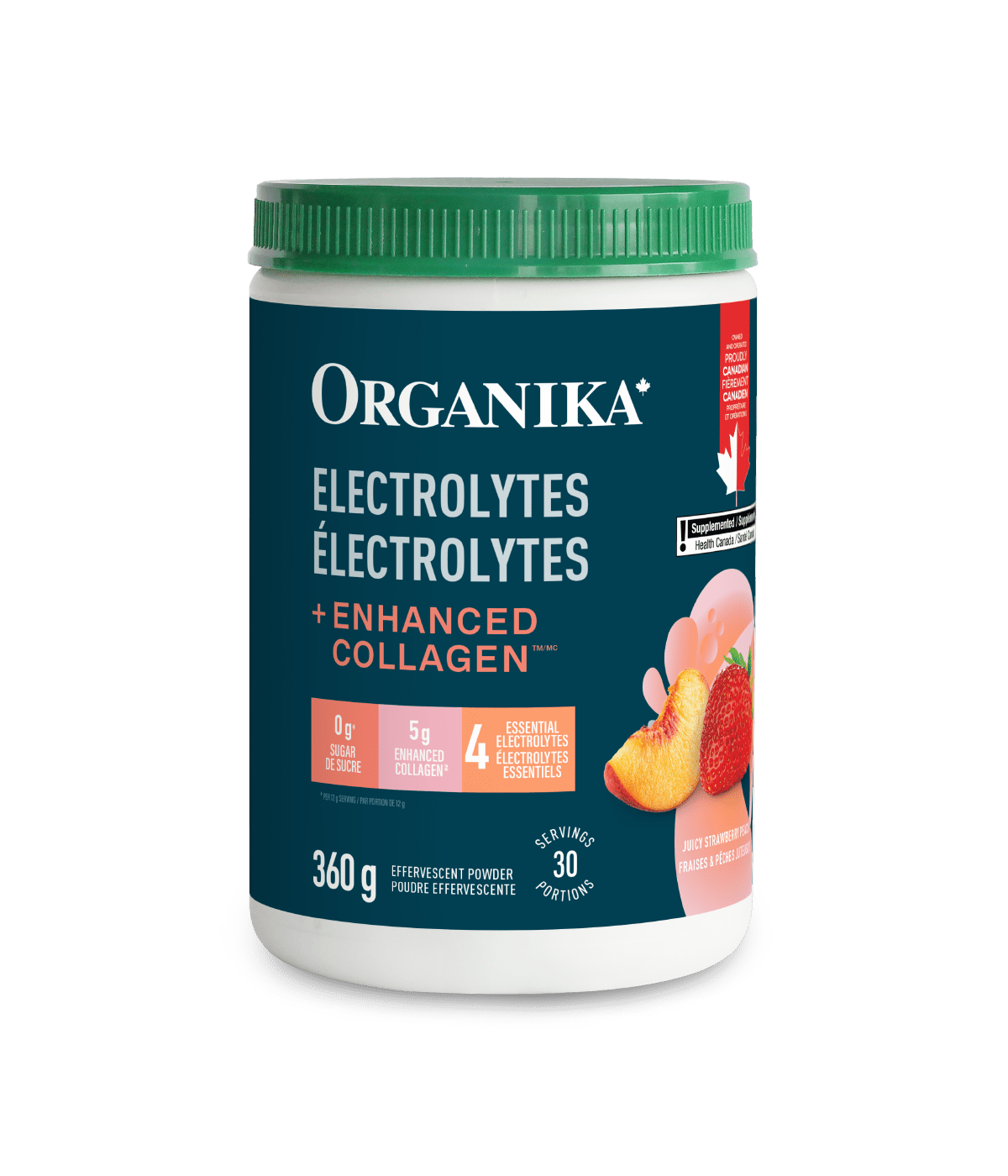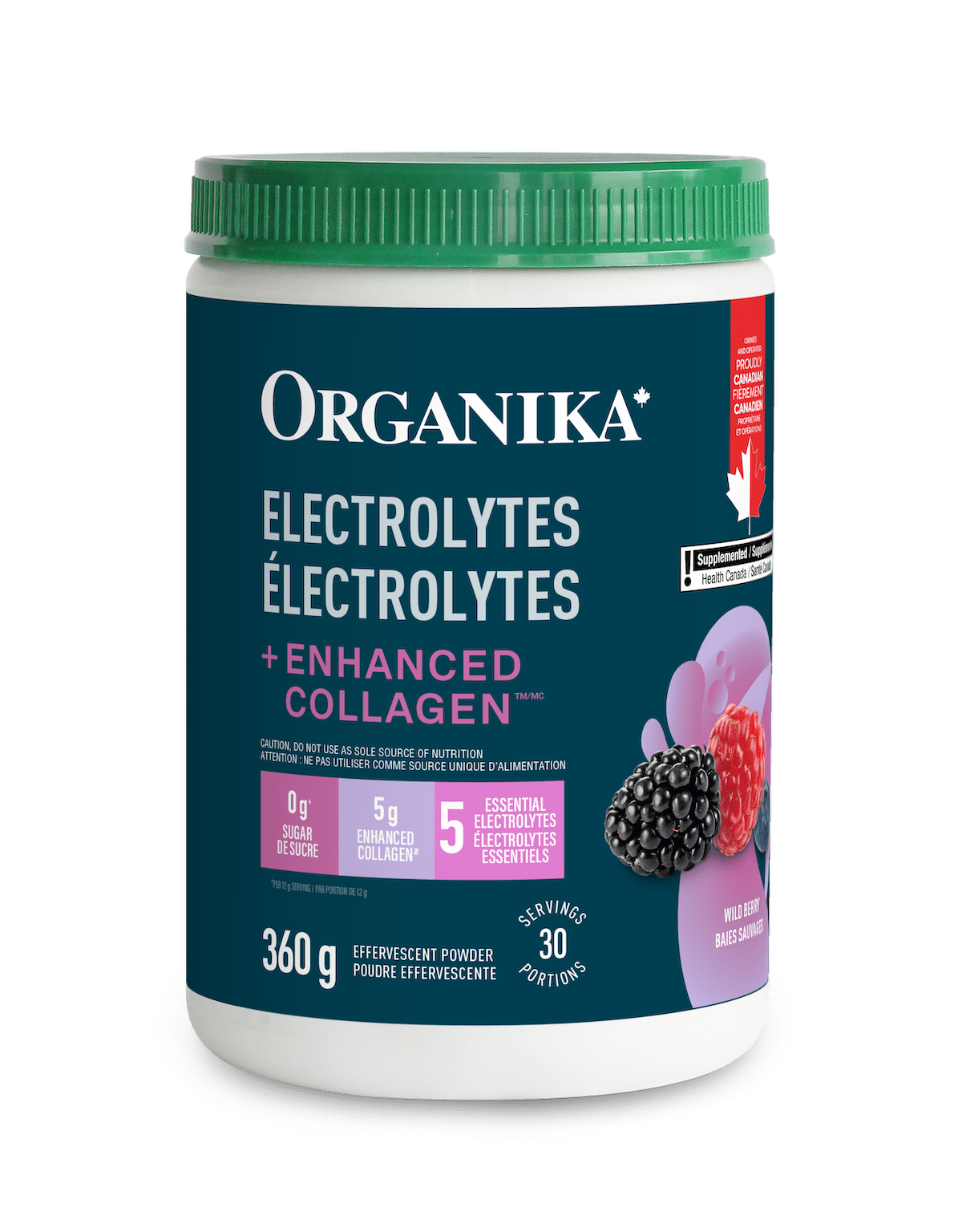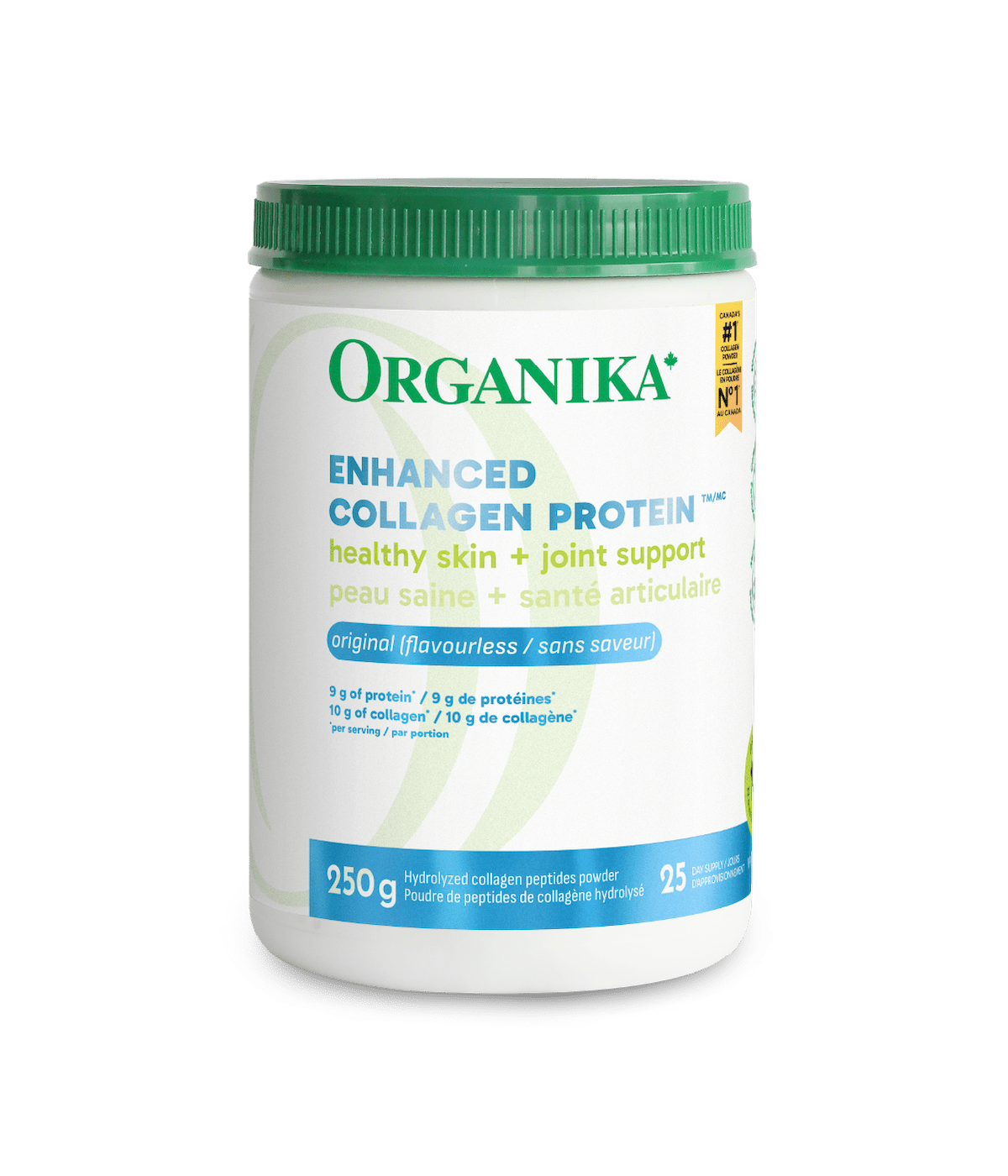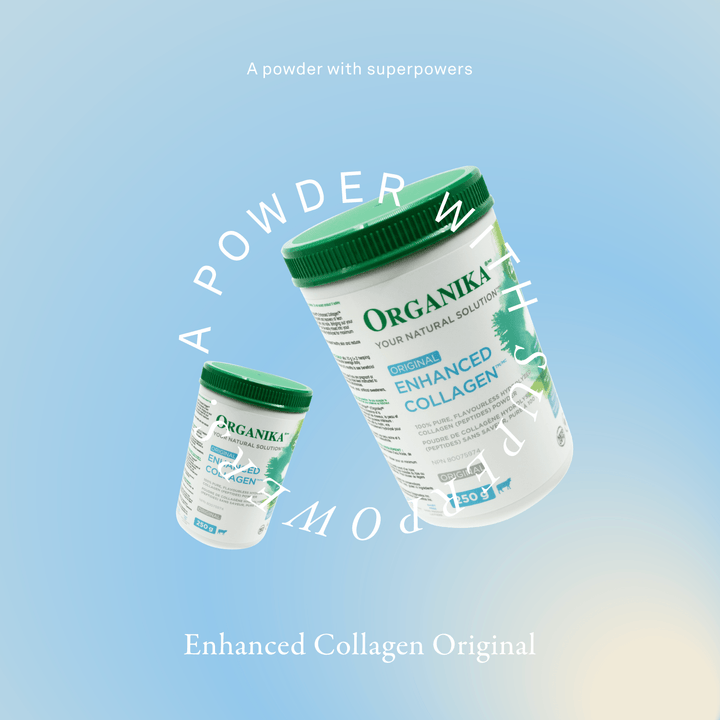You may have heard of electrolytes in sports drinks, and even be aware of some of the natural options available out there. But what do electrolytes actually do and what should you look for in an electrolyte drink or electrolyte supplements?
What do electrolytes do?
Electrolytes are a group of minerals – including magnesium, sodium, and potassium – that help conduct electricity around the body. They are essential for basically every activity in your body: muscle contraction (like your heart), regulating pH balance, keeping you hydrated and controlling your nervous system function.
Why are electrolytes important?
Electrolytes are essential to our survival, yet we can easily lose electrolytes through urine and sweat. Overconsumption of diuretic drinks such as coffee, alcohol and caffeinated teas can also reduce our electrolyte levels in the body.
This becomes especially problematic when we are sick, as we also lose electrolytes when we vomit or experience diarrhea.
Symptoms of low electrolytes levels
It can be more common to see extreme symptoms of low electrolyte levels in those who are athletes or practice a ketogenic diet (hint: the keto flu can be better managed with electrolyte supplementation). However, there are common symptoms that many of us experience, that may indicate dehydration or low electrolyte levels, including:
- Fatigue
- Headache
- Dizziness
- Nausea (with or without vomiting)
- Trembling
- Dry mouth and skin
- Muscle weakness
- Stiff and aching joints
More severe symptoms of electrolyte deficiency include:
- Change in mental status, such as confusion, delirium, lethargy, hallucinations
- Poor skin elasticity
- Rapid heart rate
- Sunken eyes
If you experience these symptoms, please seek medical attention immediately.
When to take electrolytes
In general, electrolytes can be helpful to keep up with your daily hydration goals, especially on those busy days where remembering to drink water can be a challenge. You can skip that third cup of coffee and reach for some electrolytes – you may even find it more energizing!
Some other times you may want to consider taking electrolytes include:
- When you have been in the heat for an extended period (think summertime adventures!)
- If you drank a little too much alcohol one night
- If you are engaging in high-intensity exercise
- If you are following a ketogenic or low-carb diet, or regularly practice fasting
- If you are experiencing the flu or a severe bout of diarrhea
- If you have been feeling more muscle fatigue than usual with no changes to your daily water consumption

How to replenish electrolytes
First, start with food. Lots of vegetables and fruits can supply you with magnesium and potassium, as well as sea salt to support sodium production.
But for many people, this isn’t enough. Supplementing with an electrolyte mix, like Electrolytes + Enhanced Collagen™, can provide you with these essential minerals.
What is the best electrolyte drink?
For years, we reached for electrolyte drinks packed with sugar – anyone else remember the days of choosing your favourite colour sugary sports drink for the soccer tournament? However, a few tips to ensure you pick the best electrolyte for your health goals include:
Make sure it's sugar-free
While glucose is important for many professional athletes, many average fitness folks can get away with consuming their carbs from whole-food sources pre- and post-workout.
Look for a higher sodium content
Many people shy away from sodium as we’ve been told it can lead to cardiovascular issues. However, studies show that low sodium intake can have the same effect. Electrolytes + Enhanced Collagen™ powder contains 440 mg of sodium per serving, which is known to support sore muscles.
As previously mentioned, this is especially important for those following a low-carb or ketogenic diet, whether they exercise regularly or not.
Check the magnesium content
Magnesium is always beneficial to have in an electrolyte mix to help with post-workout recovery. Magnesium citrate can be ideal, especially if you deal with muscle cramping. Electrolytes + Enhanced Collagen™ powder contains 60 mg of magnesium per serving.
No added colours or preservatives
Look for natural colouring, especially ones that add to the nutritional value of the product, like red beet powder!
Today, electrolyte drinks are savvier than ever, not only supporting your mineral needs, but taking a whole-body approach. Electrolytes + Enhanced Collagen™ combines nutrients like vitamin C, which is excellent to support tissue repair, plus 5 g of hydrolyzed grass-fed collagen per serving for additional joint support. In addition, you get all the benefits, without the less ideal ingredients like sugar, preservatives and artificial colours.
Article written by
Organika Health
Love learning about this stuff?
Get expert-backed health tips, education, product news, and exclusive offers delivered to your inbox.















